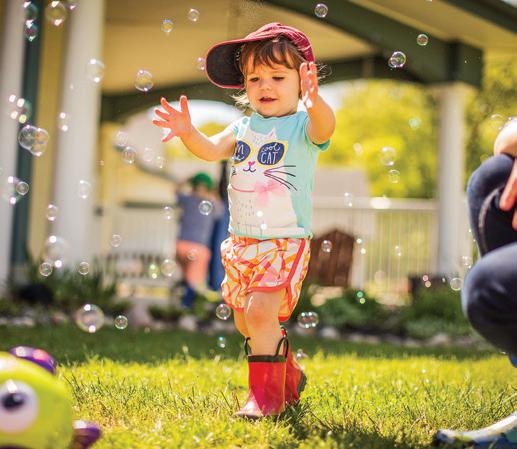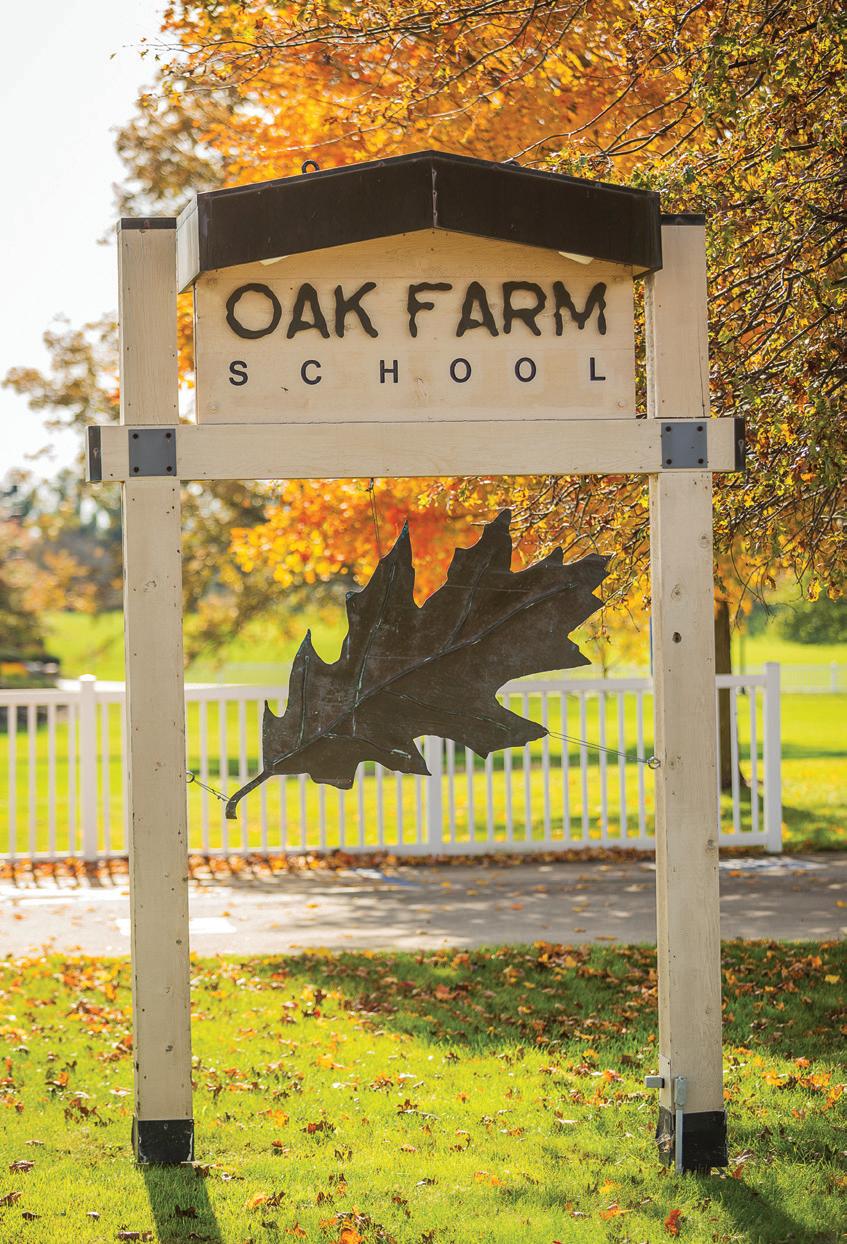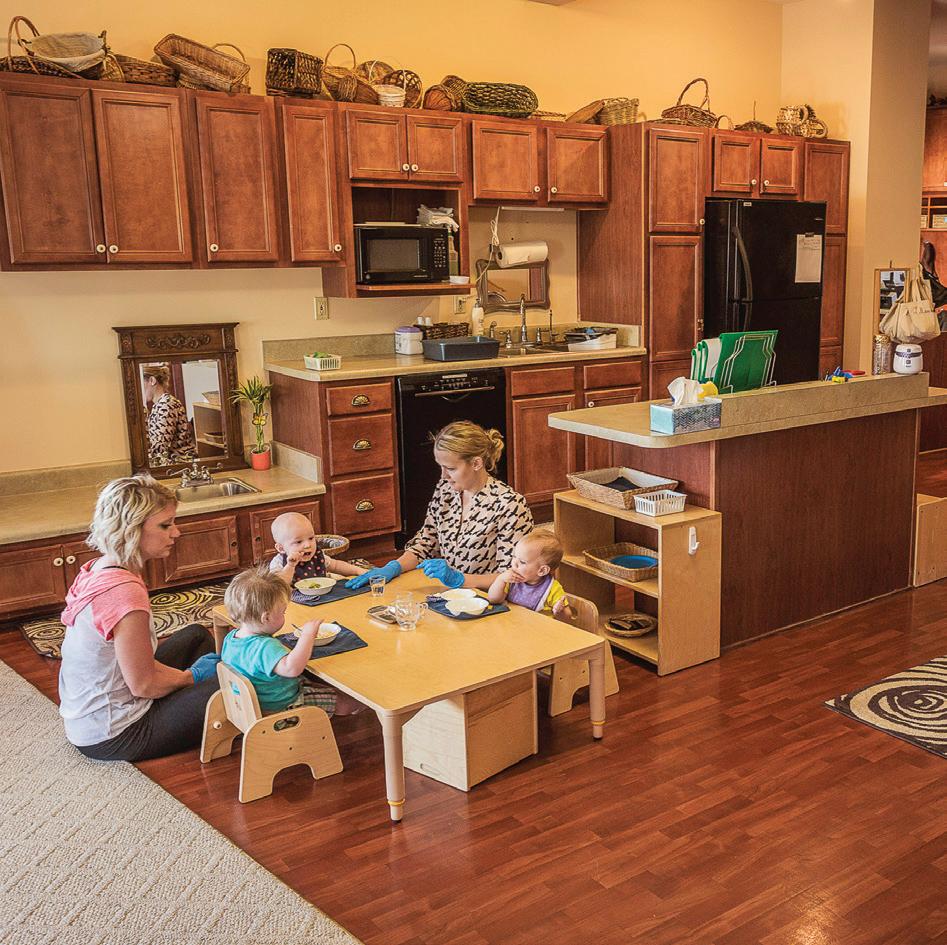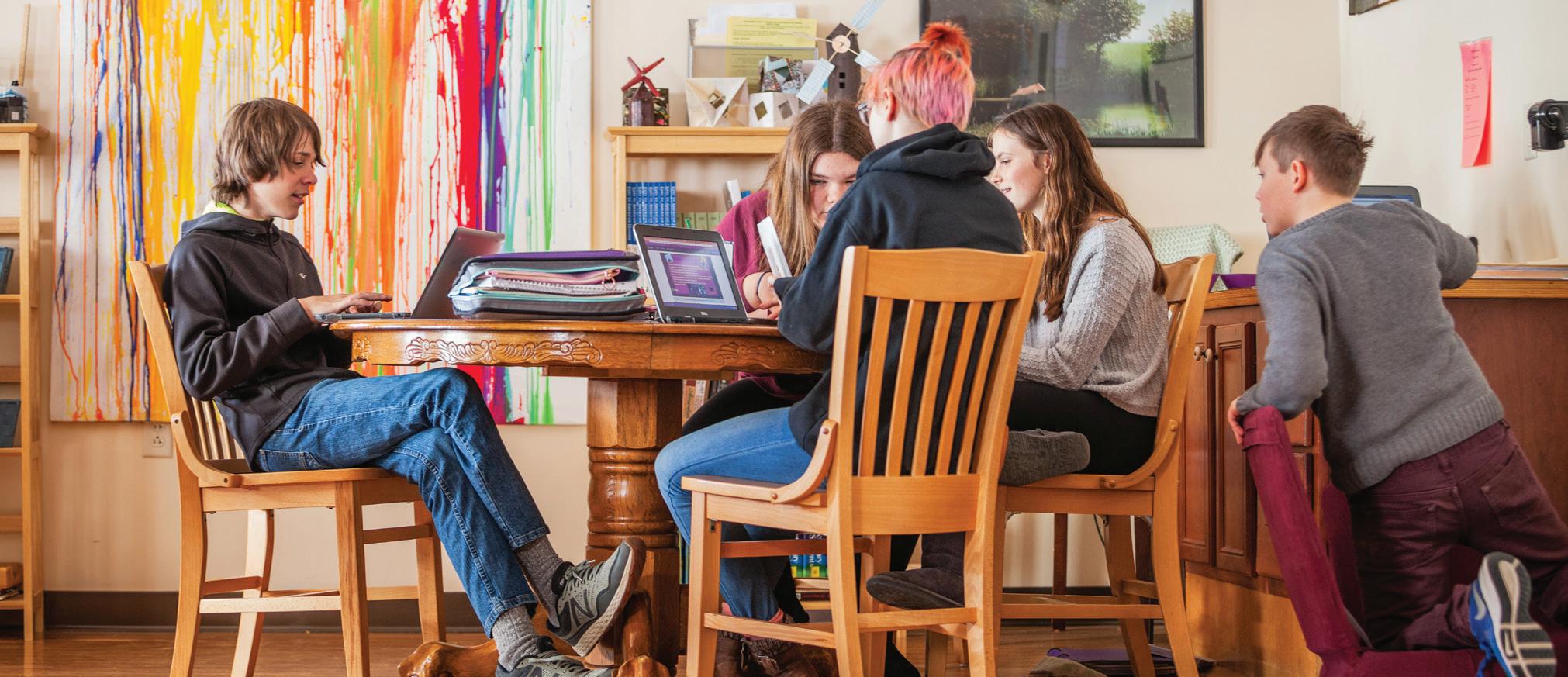
2 minute read
Elementary : Lower & Upper
Lower Elementary:
The Montessori Lower Elementary classroom is a uniquely personal and dynamic educational environment that begins the second plane of development. Through independent, self-directed study, elementary students actively reinforce the knowledge and skills acquired in the Primary environment. They are viewed as individuals and work in partnership with a teacher to develop a personal lesson plan. Once their plan is complete, they will be given lessons to meet their interests as well as being exposed to the full scope of the Montessori curriculum.
The elementary experience is a period of culture, where children are eager to learn about their own cultural heritage and that of people around the globe. It is also a time of imagination, which makes it possible to introduce subjects ranging from the study of microscopic creatures to the analysis of distances between galaxies. Students move from experience with concrete objects to more abstract knowledge through research. Dr. Montessori identified helping children understand the world around them and their responsibility toward it as a significant goal of the elementary program. She saw education as the means for transforming our world into a place of peace. This goal can only be met through strengthening the students’ ability to classify, understand, appreciate, and empathize with the world, the people, and its history.
Upper Elementary:
In the Upper Elementary environment, students of nine to twelve years of age are transitioning into adolescence. While children in this age group show striking variance in their physical development, they are actually quite similar to one another. They are adamant about their desire for independence, but they require organizational and emotional guidance. A key difference between Upper and Lower Elementary students is the power of abstraction.
Children in Upper Elementary are still inquisitive, community oriented, and universally aware. They continue to question all aspects of the world in which they live, and use their minds to reason and to conduct research; however, their reasoning may also become more abstract and their research more specific. In accordance, the curriculum allows for an exploration of a range of topics with opportunities for depth of study. Students may participate in lessons that include the history of mathematics or languages, chemical reactions, algebra, geometry, and literature, just to name a few. Lessons on note taking and opportunities for choosing various ways to demonstrate learning are an integral part of the curriculum in preparation for Middle School.





